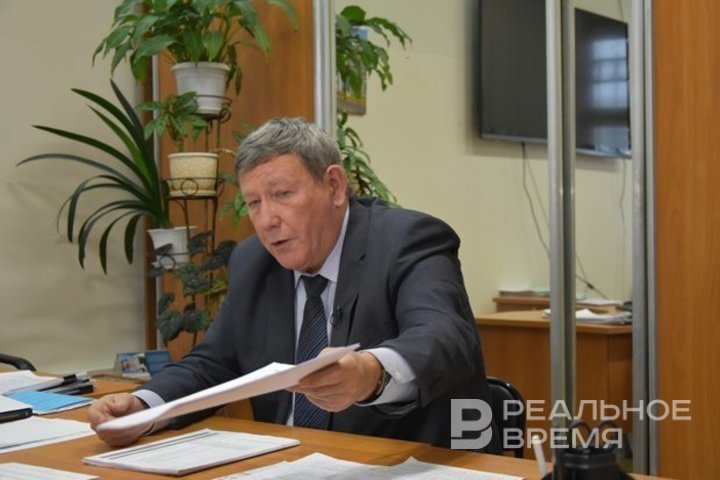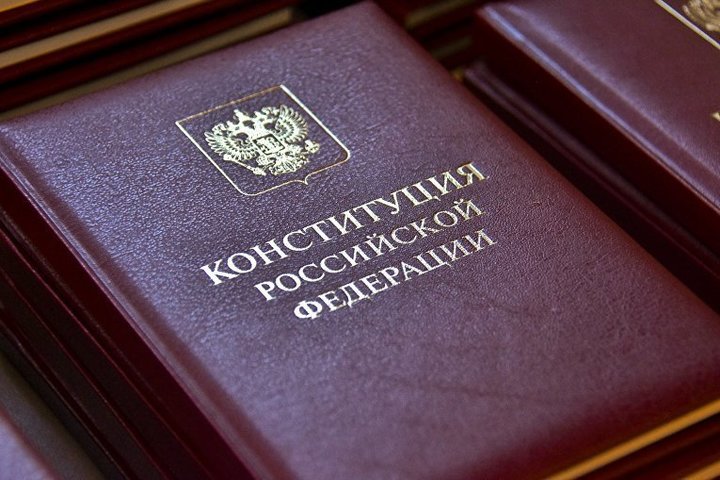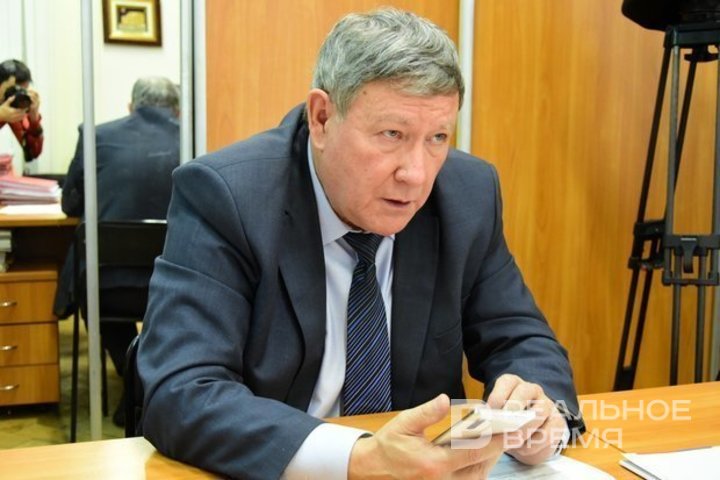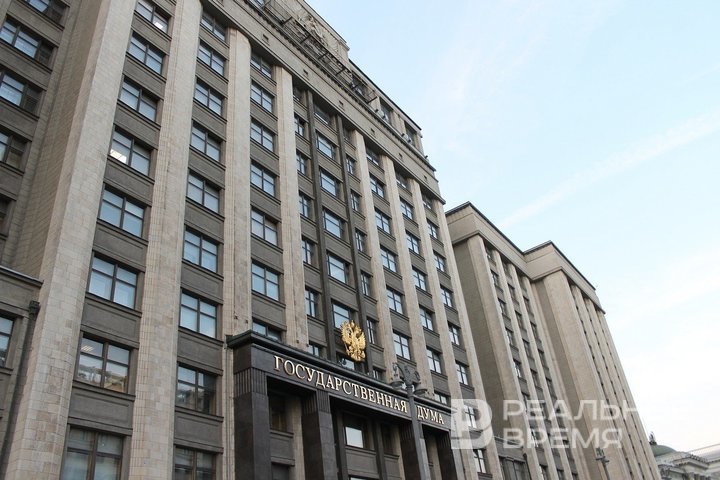Yevgeny Sultanov: ‘The development of Russian to the detriment of the languages of the peoples of Russia is a time bomb!’
The deputy of the State Council of the Republic of Tatarstan, associate professor of the Law Faculty of Kazan Federal University (KFU) on legislative initiatives in language policy

In the near future, Vladimir Putin should be presented with two legislative initiatives — a draft of the principles of state language policy and a bill on the languages of the peoples of the Russian Federation. In this regard, Tatarstan is seriously concerned about attempts to distort the task set by the president: “to ensure the development of the languages of all the peoples of the country and our common — native for every citizen of Russia — Russian language.” It seems that the developers of the documents focused on only one direction, neglecting the constitutional rights of residents of the multinational Russian state. These concerns were expressed in an interview with Realnoe Vremya by Deputy of the State Council of the Republic of Tatarstan, head of the department of constitutional and administrative law of the Law Faculty of KFU Yevgeny Sultanov.
Giving a status to a language is stupid and a dangerous undertaking!
Mr Sultanov, the opinion has formed that the bill actually abolishes the concept of mother tongue replacing it with the vague term “language of the people of the Russian Federation.” Do you agree with this?
Let's think about it. Okay, the Russian language will officially be given the status of a native language. Naturally, this position will be perceived very negatively by many national republics, and many others.
A language cannot be given a status at all, from a legal point of view — this is stupid! A language cannot have a status, only an official. There may be a legal regime for using a language and that's it. Oh well — these are purely technical things, we will operate with this incorrect concept.

But, you understand, if we call a language native and give it some mandatory elements, it means that we have to oblige someone. Russian already has the status of the state language, and the status of state languages of the republics too. Trying to give the native language or languages of the peoples of the Russian Federation the status of some parallel languages along with the state language is an absolutely wrong approach to language policy! From all points of view. There will always be competition here, and the competitors are very serious.
About the position of the native language. I think that even if we say “the language of the peoples of the Russian Federation” and put “mother tongue” into this concept, these can be considered synonyms. There is nothing terrible here. But if Russian is officially recognized as the native language, then, naturally, the question arises: how should I react to this project? Giving the native language some kind of status and mandatory character, I personally consider this a very dangerous undertaking, and it is legally difficult to implement.
“This is the same as banning the use of Tatar at home”
Will our citizens be deprived of their constitutional right to ethnic and cultural self-identification in this case?
National self-identification includes many parameters, but the language one is one of the most important. As a lawyer, I honestly cannot imagine how it is possible to make one language native. In this case, it is the same as banning the use of, say, Tatar, Mordvin, Chuvash, and so on at home.
Each person determines for themselves which language is their native language. What is the problem if there are several native languages? It is like parents: mom and dad — who is closer, who is more native?

Defining a native language is a voluntary choice for any person. How many languages they recognize as native: one, another, or 10 — it is up to them to decide. I think that this should be a completely free expression of will and there can be no legally binding element here by definition.
Do you see the risks of forced assimilation in this initiative?
Of course, how could it be otherwise. If this concept of “mother tongue” is given some official status and, as they say, suddenly tied to one language — this will be completely wrong, a very dangerous thing.
“Here even the spirit of the Constitution itself will be violated”
It turns out that the draft law directly contradicts several articles* of the Constitution at once, which guarantee the right to use the native language and the free choice of the language of communication, education and upbringing?
Absolutely right. I believe that here even the spirit of the Constitution itself will be violated, and not just its articles that provide for this kind of freedom in the choice of language. This is a deeper violation of the fundamental principles of human freedom.
Does this initiative ignore the powers of the regions of the federation?
You know, this is a very delicate matter — national development programs, general issues of education. There are many options for recognizing the establishment of the foundations of language policy as a subject of jurisdiction of the Russian Federation. Yes, there is a subject of joint jurisdiction — Article 72 of the Constitution of the Russian Federation, where you can find points that the regions of the federation have participated in regulating language policy, education issues, and so on. But what is the whole problem? In how issues of joint jurisdiction are resolved. Subjects can adopt certain laws only if there is no federal law, and in the order of preemptive legislation they can adopt their own legal regulation.

But here I doubt that there will be no federal regulation — it will definitely be according to all legal canons, including the ruling of the Constitutional Court. We will not be able to go beyond the limits of this legal regulation, which is established by federal law. In fact, at present, many issues from the subject of joint jurisdiction are already regulated by the feds, and within the limits of this federal regulation, subjects carry out their regulation. But, as practice shows, this is carried out within very narrow, insignificant limits.
Therefore, there is no violation of the powers of the subjects here — it is laid down in the Constitution itself, since federal legislation has priority over the subject legislation in this case. And these issues do not fall under the exclusive jurisdiction of the subjects. As a lawyer, I do not see any opportunities to regulate these issues at the level of the subjects in a different way than they will be regulated by federal legislation.
“Perhaps, the development of Russian will be put at the expense of the development of the languages of the peoples of the Russian Federation”
To what extent is it possible and correct to transfer the regulation of the entire language policy to the federal level?
Again, this is a difficult question. Take the acute problem of the relationship between the Russian language and all kinds of foreign borrowings. I think that here these powers of the Russian Federation to preserve and protect the Russian language from this kind of influence are unlikely to be disputed — its ability to regulate these processes.
Remember the recent past: disputes about the time of teaching languages in the national republics, that is, how many hours are allocated for teaching Russian and the native language. This is also a problem that, from my point of view, should be solved uniformly throughout Russia. Here, various options for the legal regime for language use seem unacceptable to me.

What should the regions do if their range of opportunities for further use, preservation and development of native languages narrows? Could this negate most state guarantees in the language sphere, including the rights of national republics?
Strictly speaking, you are asking the most important question. But here again, everything depends on language policy, that is, on the policy of the federal authorities. After all, two options are possible. For example, everything will be regulated in such a way that there will be room for the development of both Russian and native languages.
An ideal option.
Yes, but another option for legal regulation is also possible, when the development of one language, specifically Russian, will be put at the expense of the development of native languages or languages of the peoples of the Russian Federation. Is such an option possible? Of course. But this is the stupidest, worst option that can be thought up. Especially in terms of the general policy of development of all cultures, harmonization of all cultures, and so on. This will contradict the entire current national policy of the Russian Federation.
I do not think that those who will create this draft of the normative legal act and who will adopt it will choose such a scheme when the development of the Russian language will be to the detriment of the development of native languages of various nationalities in Russia. I think that hardly anyone will come to such stupidity.
This is not even stupidity, this is sabotage, frankly speaking. If they do it, it will be such a time bomb! I hope that legislators are smart enough to prevent such a course of events.

“If you develop at someone else's expense, it is a dead end”
If this negative scenario does come true, what risks await us?
National problems, like any social ones, tend to act slowly and have a cumulative effect. Accordingly, this may not manifest itself in the current situation, but it will have a very significant impact in the future. When a new generation grows up, these negative moments will certainly affect the situation. Therefore, if you do something wrong today, how it will come back to haunt you later is, of course, very difficult to predict.
And the fact that discontent will grow in society is understandable, but this is not the worst-case scenario.
State Duma deputy Ildar Gilmutdinov has already complained that “the concept of the bill on the languages of the peoples of Russia has caused tension.” He believes that the bill “should not separate, but rather unite even more.” What do you think about this, do you share his concerns?
I always say that such things require a very thorough public discussion at all levels. There should be no cell-like get-togethers, closed discussions in departments — this is absolutely the wrong way! I say this as a deputy. Of course, the reaction will be negative to such bills.

When studying the materials of open meetings, one gets the impression that the president set a completely different task. The question is in the interpretations at the level of the performers?
You know, there is a good Russian proverb: make a fool pray to God — he will break his forehead. It is quite possible that excessive zeal was applied here.
There is a pseudo-struggle, since there is a fear: how could this native language lead to the revival of some nationalistic sentiments and the like. This is precisely the worst advisor and the worst option.
Instead of understanding that the development of one and other languages will lead to harmonization in society. But if you try to develop at someone else's expense, this is a dead end.
*Article 26 (Part 2) of the Constitution of the Russian Federation guarantees the right to use one's native language, free choice of the language of communication, education and upbringing; Article 29 (Part 3) — prohibits coercion to express opinions, including linguistic identity; Article 68 (Parts 2-3) — enshrines the right of republics to establish their state languages and guarantees the preservation of linguistic diversity; Article 72 (Clause 1b) — attributes the protection of human and civil rights and freedoms to the joint jurisdiction of the Russian Federation and the regions.